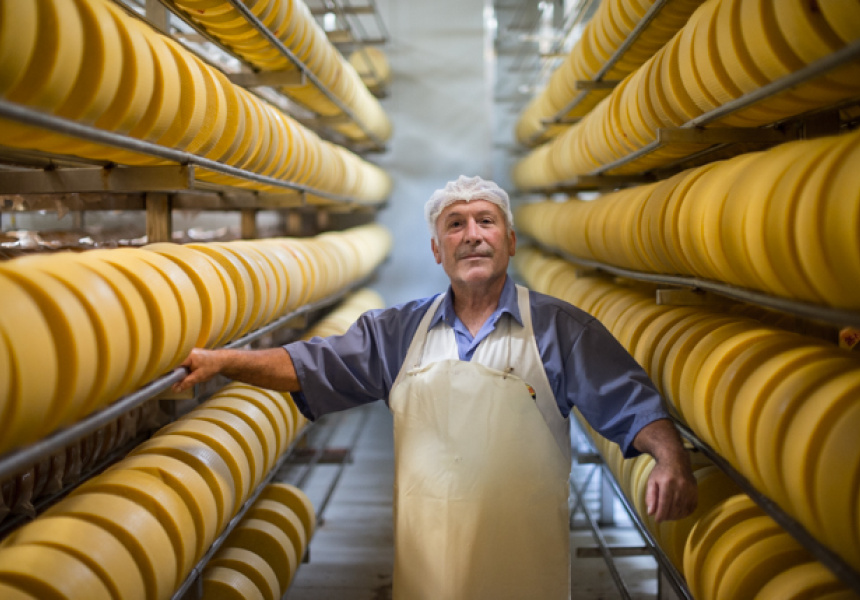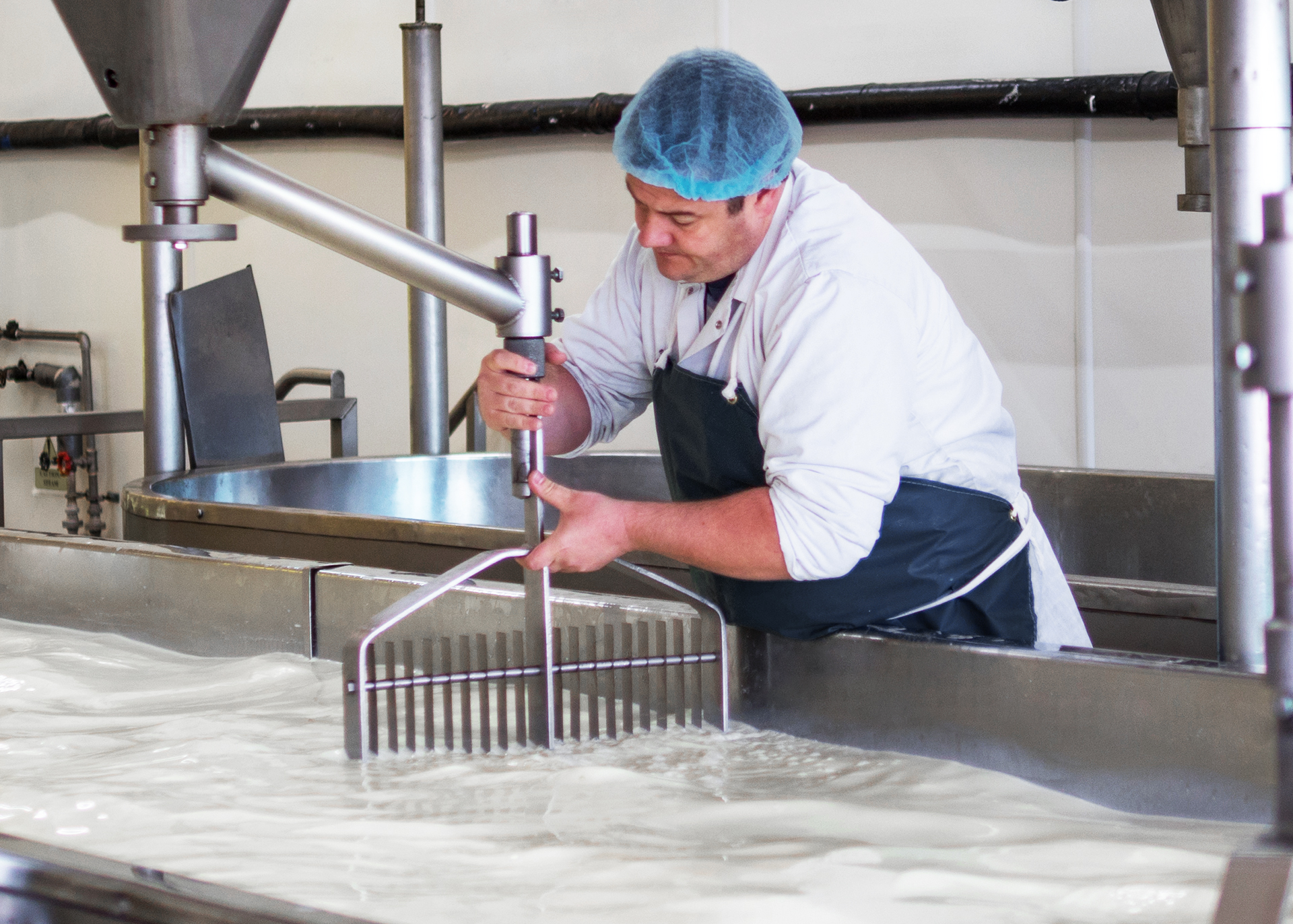Cheese Factory Melbourne: Experience the Art of Cheese
Cheese Factory Melbourne: Experience the Art of Cheese
Blog Article
An Extensive Take A Look At Cheese Production: Ingredients, Approaches, and the Future of Craftsmen Cheeses
The elaborate procedure of cheese manufacturing is a fascinating convergence of art and scientific research, where high-grade milk, rennet, and specific microbial societies serve as foundational aspects. As the sector progressively prioritizes sustainability and transparency, the future of artisan cheeses promises to show both heritage and progression.
Key Ingredients in Cheese Manufacturing
A variety of crucial active ingredients play a crucial duty in cheese production, each adding to the end product's taste, appearance, and character. The key component in cheese is milk, which can originate from numerous resources, including cows, goats, and sheep - cheese for sale online. The kind of milk used significantly affects the cheese's taste and consistency; as an example, cow's milk generally generates creamier cheeses, while goat's milk commonly produces tangy varieties
Another critical component is rennet, an enzyme utilized to curdle the milk, dividing it into curds and whey. The resource of rennet can be animal, veggie, or microbial, each imparting unique qualities to the cheese. Cultures, being composed of details strains of germs, are also indispensable to the cheese-making procedure. They ferment lactose right into lactic acid, helping in flavor growth and appearance.
Salt not only enhances the taste yet additionally functions as a preservative, preventing the development of unwanted bacteria. Additionally, numerous flavoring representatives, such as herbs, spices, or perhaps smoked timber, can be included to produce special artisanal cheeses. With each other, these active ingredients form the foundation of cheese production, setting the phase for diverse and rich cheese selections.
Traditional Cheese-Making Methods
Using standard cheese-making methods, artisans all over the world maintain classic techniques that have been passed down through generations. These techniques typically stress the usage of high-quality, in your area sourced milk, which is central to the one-of-a-kind tastes and structures of artisanal cheeses. The process usually begins with the mindful heating of milk, complied with by the addition of cultures and rennet to facilitate coagulation.
When the curds develop, they are cut, permitting whey to drain, a critical action that influences moisture web content and appearance. The curds are then gently stirred and prepared to attain the desired suppleness. Afterward, they are drained and pressed right into molds. Salting is an important facet of this process, enhancing flavor while additionally functioning as a preservative.
Aging, or affinage, is one more important part, throughout which cheeses create their particular scents and tastes. Artisans may employ certain maturing settings, using moisture and temperature level controls to link refine celebrity's account. The dedication to these traditional techniques not only supports local economic climates yet likewise adds to the rich variety of cheese ranges located internationally, celebrating cultural heritage and artisanal workmanship.
Modern Developments in Cheese Manufacturing
Just how have technical developments transformed cheese production in recent years? The assimilation of modern technology has actually reinvented both the effectiveness and high quality of cheese manufacturing.
Additionally, innovations in microbiology have actually enabled cheesemakers to pick certain bacterial cultures and enzymes, enhancing flavor accounts and improving service life. Making use of sensing unit technology redirected here for keeping track of fermentation conditions has likewise ended up being common, permitting real-time adjustments to preserve optimum settings for cheese aging.

These innovations not only boost the quality and sustainability of cheese manufacturing yet likewise encourage artisan producers to keep standard tastes while accepting modern effectiveness. As technology proceeds to advance, the future of cheese manufacturing looks encouraging, mixing tradition with development.
The Function of Terroir in Cheese
In the world of cheese manufacturing, terroir plays a critical role in defining the distinct attributes of different cheeses. Terroir, a French term commonly connected with wine, encompasses the ecological variables that influence agricultural products, consisting of dirt composition, climate, and neighborhood vegetation and animals. In cheese-making, the one-of-a-kind qualities of the region where the milk is sourced can convey particular flavors and appearances to the last item.
For example, the grazing problems of dairy products animals dramatically impact the milk's structure, influenced by the kinds of turfs and herbs offered in a specific area. This varies not just in between countries but additionally between areas within the very same nation. Additionally, the microbial communities present in the atmosphere add to the fermentation procedures, his comment is here bring about varied profiles in flavor and scent.
Cheeses such as Roquefort, Parmigiano-Reggiano, and Cheddar exhibit exactly how terroir can form their identifications, making them distinct and frequently safeguarded by geographical indications. As producers increasingly acknowledge the significance of terroir, there is a growing emphasis on sourcing local active ingredients and preserving traditional techniques, ensuring that each cheese absolutely mirrors its origin.

Future Trends in Artisan Cheeses
A noteworthy change is taking place in the artisan cheese field, driven by advancing customer choices and technological developments. Increasingly, consumers are inclining unique, high-grade items that highlight both sustainability and local sourcing - cheese makers melbourne. This trend is prompting artisan cheesemakers to innovate, concentrating on small-batch manufacturing and using traditional methods while integrating contemporary innovation to boost high quality and safety
Furthermore, there is a growing interest in plant-based and alternative milk products, pushing conventional cheesemakers to check out new avenues, such as cashew or almond-based cheeses. This shift not only accommodates dietary limitations but likewise lines up with environmental worries relating to pet farming.
Furthermore, openness in sourcing and production procedures is coming to be paramount. Customers are a lot more educated and need traceability, triggering manufacturers to adopt more clear labeling practices and engage in narration that highlights their techniques and values.
Verdict
In verdict, the detailed process of cheese production melds typical techniques with modern technologies, leading to a diverse selection of flavors and textures. The focus on high-quality ingredients and the influence of terroir underscore the creativity associated with cheese production. As the market advances, a concentrate on sustainability and openness will likely form the future of artisan cheeses, dealing with a progressively critical customer base that values credibility and workmanship in dairy items.
Report this page